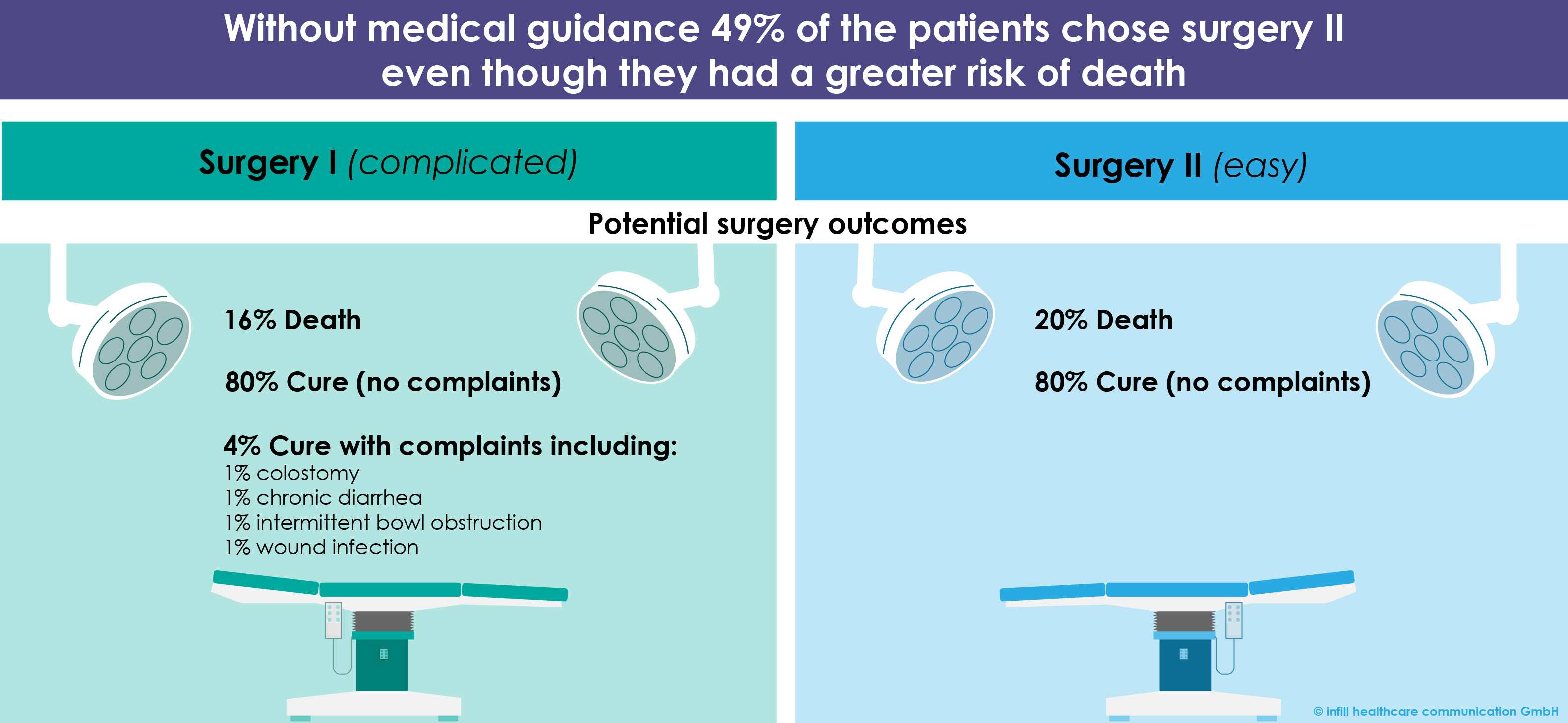Shared decision-making – a physician’s perspective
In helping their patients to make treatment decisions, HCPs are faced with an impossible task – to ensure patients have understood their treatment options without bias.
In a thought-provoking survey, participants were required to choose between two different surgical interventions for colon cancer.1 Both surgery options are 80 percent effective without complications. In the case of surgery 1, participants also have a 4% chance of debilitating complications (1% colostomy, 1% chronic diarrhoea, 1% bowel obstruction and 1% wound infection) and 16% will die. In treatment option 2, 20% will die. 49% of people surveyed chose treatment option 2 over treatment option 1, but 90% of participants reported that they would prefer to live with each of the complications rather than die. Clearly there is inconsistency in their decision making. The participants’ fear of life-changing complications lead them to miss that treatment option 2 has a 4% higher survival rate.

Patients having different levels of health literacy. Contrary to what one might think, health literacy does not simply refer to a patient’s ability to read but moreover whether a patient can understand numbers and therefore quantify risk, communicate with healthcare professionals and consequently, make informed decisions about their health.2
Poor health literacy is associated with higher rates of emergency department visits, hospitalisations, medication non-adherence and mortality.3
Like many of us, there is one perpetual challenge that healthcare practitioners (HCPs) face – ‘There’s not enough time’. Involving patients in treatment decision making, inevitably increases consultation length. Good doctor-patient communication should help to regulate patients’ emotions, ensure comprehension of medical information, and allow for better identification of patients’ needs, perceptions, and expectations. This is a rather tall order for any busy HCP.
There is a need for the healthcare community to develop innovative methods for patient communication. infill offers standing working groups for HCPs (doctors, nurses and psychologists) which provide a platform for exchange of information and discussions of complex issues. Standing working groups provide an excellent platform for HCPs to work together to find better ways to communicate difficult treatment options to patients.
Whether you are part of a pharma company or a patient advocacy group and you would like to set up a standing working group with key opinion leaders in your field, please contact us at info@infill.com.









